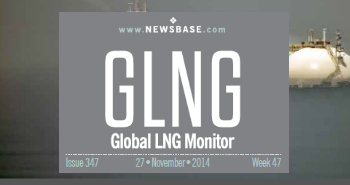KenGen contractor to study feasibility of LNG-to-power project
Kenya’s national electricity provider has reportedly chosen US-based K&M Advisors as its contractor for a feasibility study of a proposed LNG-to-power project.
K&M Advisors announced the contract award last week, saying it had agreed to perform this service for state-owned Kenya Electricity Generating Co. (KenGen) over a period of 10-12 months. The study will address the viability of proposals to build an LNG import terminal in the port of Mombasa and examine the potential technical, financial, economic, social and environmental impact of such a project, it stated.
Additionally, K&M Advisors will examine the cost and viability of various LNG import facilities. These will include onshore terminals and floating storage and regasification units (FSRUs), as well as smaller-scale options such as rail or truck delivery.
The US-based consultancy has not revealed the value of the contract. It has said that KenGen is looking at plans to build the LNG import terminal within the framework of a wider effort to establish a domestic gas market in Kenya. This initiative would entail converting 10 existing generating facilities that burn heavy residual fuel oil or kerosene to gas, as well as the construction of a new gas-fired thermal power plants (TPPs) in or near Mombasa, it reported.
As such, the study will attempt to determine whether regasified LNG is a more cost-effective fuel for power generation than petroleum products in Kenya. (Part of this process will involve scrutinising a number of different potential suppliers.) It will also examine opportunities for supplying gas to Kenyan industrial consumers that are now relying on residual fuel oil or diesel.
Kenya is not currently a producer or consumer of natural gas. However, it has expressed interest in importing gas from neighbouring Tanzania.
More specifically, Kenyan President Uhuru Kenyatta discussed the possibility of constructing a cross-border pipeline in May of this year, during a meeting with his Tanzanian counterpart Samia Suluhu Hassan in Nairobi. At the time, both Suluhu and Kenyatta described the proposed pipeline as part of a wider long-term initiative that would help the two countries share energy resources. They also put the cost of building the link along a 600-km route ending in Mombasa at around KES121bn ($1.09bn).
According to Kenyatta, the pipe would allow Kenyan TPPs to use gas as fuel for generation, thereby bringing down the cost of power in Kenya and also reducing emissions.





Follow us online